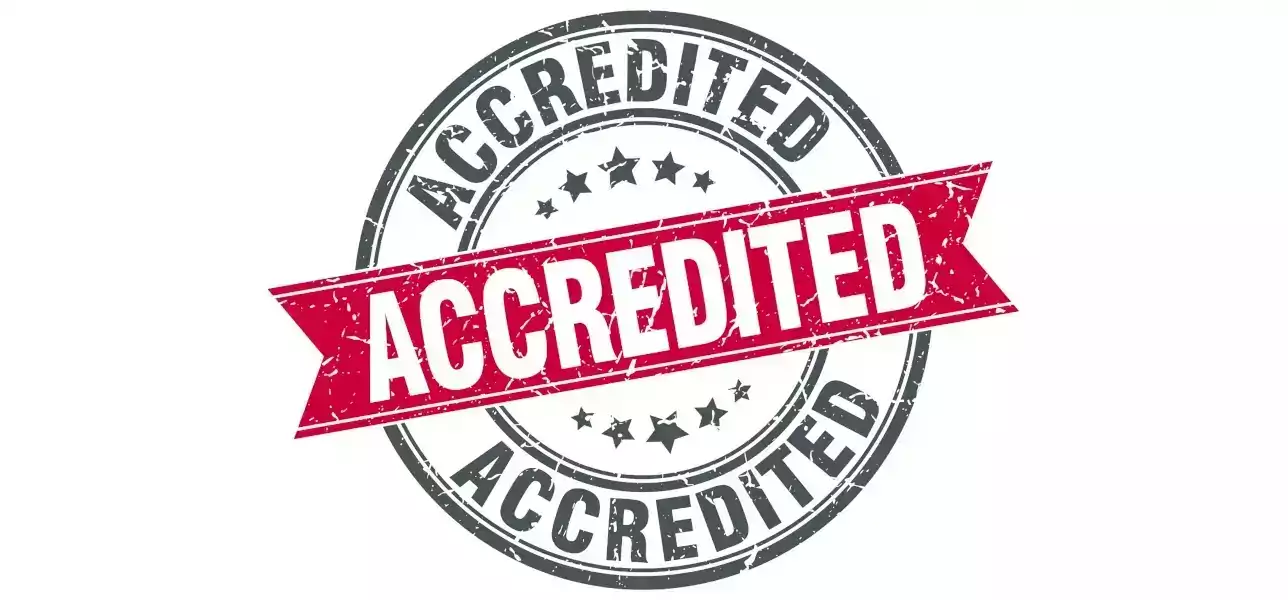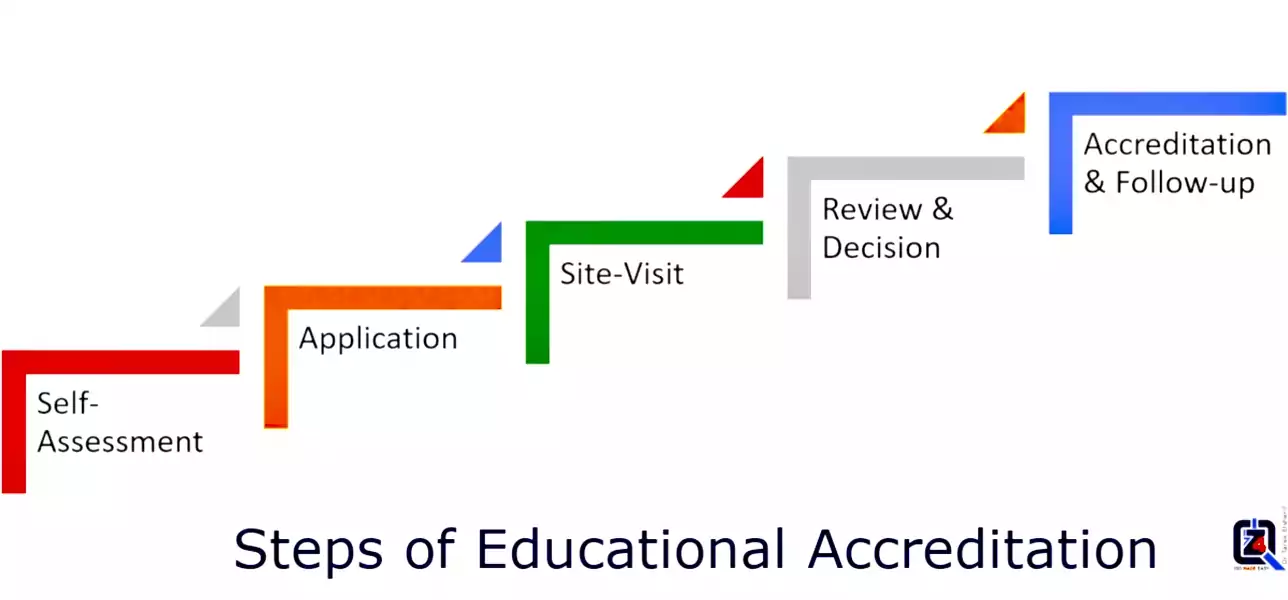What is Educational Accreditation?




Welcome to the 4Z-Pedia. Many countries consider education as a part of its national security. Education is what raises the leaders of the society, its scholars, protectors, teachers, doctors, engineers, etc. So, let's learn more about accreditation of educational institutions, that ensures quality education for every individual in the society
Quality Education:
- A quality education is one that focuses on the whole student; the social, emotional, mental, physical, and cognitive development of each student regardless of gender, race, ethnicity, socioeconomic status, or geographic location.
- A quality education provides resources and directs policy to ensure that each student enters schooln or university healthy and learns about and practices a healthy lifestyle; learns in an environment that is physically and emotionally safe for students and teachers; is actively engaged in learning and is connected to the school or university and broader community; has access to personalized learning and is supported by qualified, caring teachers; and is challenged academically and prepared for success in college or further study and for employment and participation in a global environment.
- A quality education provides the outcomes needed for individuals, communities, and societies to prosper.
- A quality education allows schools or universities to align and integrate fully with their communities and access a range of services across sectors designed to support the educational development of their students.
- A quality education is supported by 3 key pillars: ensuring access to quality teachers; providing use of quality learning tools and professional development; and the establishment of safe and supportive quality learning environments.
- A quality education should prepare students for LIFE, with all its current complexities, not just prepare them for EXAMS.
A quality education should
prepare students for LIFE, with all its current complexities, not just prepare them for EXAMS. 4Z for Quality knows this well, and this
is the essence of what it offers to its valued customers
Educational Accreditation:
- Educational accreditation is the process of evaluation and verification of the quality of services and operations of any educational institution, or program by an external body. In order to determine whether applicable and recognized standards are met. If standards are fulfilled, accreditation is granted.
- To be accredited, schools, institutes or universities must undertake an extensive process that requires them to successfully pass quality indicators as: manage accurate data, design high-standard courses, carry out periodical assessments to evaluate and enhance performance of students, provide top-level facilities, teaching aids, etc.
- Educational accreditation is performed in most countries by a governmental organization, usually the ministry of education.
- In USA, the government delegates instead the accreditation to private, non-profit organizations (accreditors), all accreditors in USA must in turn be recognized by the national advisory committee on institutional quality and integrity (NACIQI), which is a body of the U.S. ministry of education. That means that also in the US, accreditation is indirectly controlled by the government.
Purposes of the Accreditation:
- Academic Quality: standards have been designed to enhance academic quality in schools, institutes and universities. Standards emphasize student achievement and high expectations of teaching, learning, research, service, and outreach.
- Accountability: educational institutions seeking accreditation have accountability standards that are consistent, clear, and communicated to the public and the community. Results of educational outcomes are readily available and used in planning for change and enhancing the program.
- Planning and Improvement: accredited institutions are encouraged to plan, where needed, for change and for improving the learning environment. institutions anticipate and address change in a timely and methodical manner. Student achievement is stressed.
Who benefits from the Accreditation?
- The public can be assured that accredited programs are evaluated and inspected extensively and conform to the expectations of education.
- Students can identify and choose programs that meet quality standards of education.
- Institutions benefit from the self-evaluation and program improvement provided by the accreditation process and earn credibility.
- Any profession benefit from crucial input into the standards established for its future professionals.
What are the benefits of the Accreditation?
- Accreditation determines whether an institution is meeting standards of education and provides official recognition by the community.
- Accreditation improves enrollment rate by winning trust of students and parents.
- Accreditation encourages strategic planning, identifies areas for improvement, and provides substantial information that can be used to support human or financial resource decisions.
- Accreditation is extremely significant in recruiting outstanding staff and students.
- Accreditation contributes to the assurance that graduates of these programs have proper preparation that meets nationally accepted standards and quality.
- Accreditation enhances program credibility and knowledge level of students.
- Accreditation helps traditional programs to cope with changes in the fast-developing academic world.
- Accreditation self-study and site-visit processes provide opportunities to help faculty members, personnel, and leadership to better understand programs offered by the institution.
- Accreditation helps ensure that the institution is a leader in education.
- Accreditation promotes self-improvement of educational institutions and program improvement.
- Accreditation can be a very strong factor in program retention debates.
- Accreditation offers a competitive advantage for programs, students, and careers.
- Accreditation may affect the amount of state money that the institution receives.
Steps of educational Accreditation:

- Self-assessment: the institution that seeks an accreditation, should perform a self-assessment to its operational processes according to the relevant local or international standards. This can be done by their own staff, or with the help of an external quality consulting agency, like 4Z for Quality.
- Application for the accreditation: the institution applies for the accreditation and signs an agreement with the accrediting body.
- Eligibility verification of the accreditation: the accrediting body examines documents sent by the institution (proof of compliance to the educational standards set forth by the accreditation body), and a review report is sent back to the institution.
- Site-visit: the accrediting body assign reviewers (number of reviewers varies according to the size of the institution and number of programs). Then, a visit schedule is set up in coordination with the institution. Site-visit is executed, in which, interviews are conducted with students and staff. Facilities and equipment are inspected, and documents are examined.
- Review report: after the site-visit, reviewers submit an initial report draft, that will be verified by consultants. Then, a copy with improvement recommendations, if any, is sent to the institution.
- Accreditation decision: if the institution fulfils the requirement, a final report is issued to recommend accreditation. The accreditation status of the institution is then announced.
- Periodic follow-up: the institution prepares an annual report on its status, and efforts made to implement any recommendations of the accrediting body. Subsequently, the accrediting body examines the report, make a site-visit to the institution (if needed), and issues a follow-up report and send it to the institution. This ensures that the institution continue to adhere to high standards after initially earning accreditation.
Get Started with professional educational quality consultants.
Now after this overview of the general steps of Educational Accreditation, email us today at: support@the4z.com, if you have any question about this topic, or if you have decided to initiate an accreditation process for your institution.We will be pleased to answer all your questions about educational quality, and give you the best support in the region for your accreditation process. Call 4Z for Quality today at (also on WhatsApp): +973 3399 5807 or +90 5050 3040 16.
Further Readings:
- Quality Management System
- Concepts of QMS
- Principles of QMS
- ISO Standards
- Steps of ISO Certification
- Prepare for ISO Certification
- Clean Business
- Strategic Planning
Videos:
External Links:
- ➤ US National Advisory Committee on Institutional Quality and Integrity (NACIQI)
- ➤ 2023 QS World University Rankings
- ➤ 2022 Times Higher Education World University Rankings
- ➤ 2022 Shanghai Ranking of World Universities
Quality Quote:
- Madness is doing exactly the same thing over and over again, and expecting different outcomes

